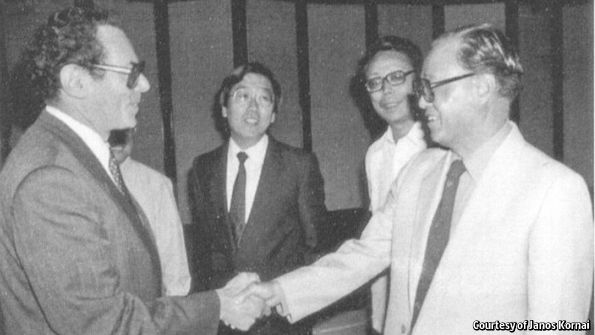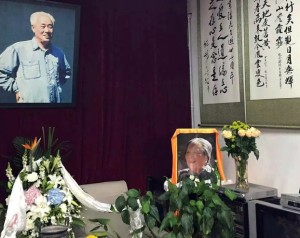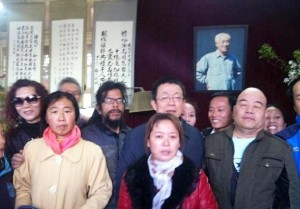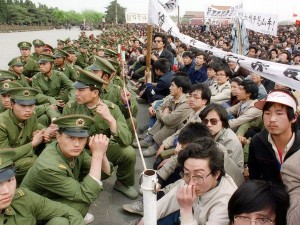 Unlikely Partners: Chinese Reformers, Western Economists, and the Making of Global China. By Julian Gewirtz. Harvard University Press; 389 pages; $39.95. To be published in Britain on January 31st. Continue reading
Unlikely Partners: Chinese Reformers, Western Economists, and the Making of Global China. By Julian Gewirtz. Harvard University Press; 389 pages; $39.95. To be published in Britain on January 31st. Continue reading
About ICPC
The Independent Chinese PEN Center (ICPC) is a non-political, non-profit organization of writers that fights for the protection of freedom of expression and publication, and works toward ensuring the free flow of information, a prerequisite for a truly open society.More
Monthly Posts
- 2024 年 3 月 (1)
- 2023 年 4 月 (3)
- 2022 年 10 月 (1)
- 2022 年 7 月 (1)
- 2021 年 1 月 (3)
- 2020 年 12 月 (2)
- 2020 年 11 月 (2)
- 2020 年 9 月 (4)
- 2020 年 8 月 (1)
- 2020 年 7 月 (1)
- 2020 年 6 月 (5)
- 2020 年 5 月 (2)
- 2020 年 4 月 (1)
- 2020 年 3 月 (3)
- 2020 年 2 月 (5)
- 2020 年 1 月 (11)
- 2019 年 12 月 (2)
- 2019 年 11 月 (6)
- 2019 年 10 月 (4)
- 2019 年 9 月 (4)
- 2019 年 8 月 (3)
- 2019 年 7 月 (5)
- 2019 年 6 月 (14)
- 2019 年 5 月 (1)
- 2019 年 4 月 (1)
- 2019 年 3 月 (3)
- 2019 年 2 月 (2)
- 2019 年 1 月 (4)
- 2018 年 10 月 (4)
- 2018 年 9 月 (1)
- 2018 年 8 月 (1)
- 2018 年 7 月 (2)
- 2018 年 6 月 (3)
- 2018 年 5 月 (1)
- 2018 年 4 月 (2)
- 2018 年 3 月 (2)
- 2018 年 2 月 (4)
- 2018 年 1 月 (2)
- 2017 年 12 月 (2)
- 2017 年 11 月 (3)
- 2017 年 10 月 (1)
- 2017 年 6 月 (1)
- 2017 年 5 月 (3)
- 2017 年 3 月 (27)
- 2017 年 2 月 (24)
- 2017 年 1 月 (33)
- 2016 年 12 月 (24)
- 2016 年 11 月 (27)
- 2016 年 10 月 (29)
- 2016 年 9 月 (31)
- 2016 年 8 月 (31)
- 2016 年 7 月 (30)
- 2016 年 6 月 (26)
- 2016 年 5 月 (30)
- 2016 年 4 月 (27)
- 2016 年 3 月 (33)
- 2016 年 2 月 (26)
- 2016 年 1 月 (32)
- 2015 年 12 月 (36)
- 2015 年 11 月 (34)
- 2015 年 10 月 (41)
- 2015 年 9 月 (36)
- 2015 年 8 月 (37)
- 2015 年 7 月 (37)
- 2015 年 6 月 (39)
- 2015 年 5 月 (39)
- 2015 年 4 月 (39)
- 2015 年 3 月 (30)
- 2015 年 2 月 (38)
- 2015 年 1 月 (37)
- 2014 年 12 月 (35)
- 2014 年 11 月 (46)
- 2014 年 10 月 (92)
- 2014 年 9 月 (159)
- 2014 年 8 月 (109)
- 2014 年 7 月 (123)
- 2014 年 6 月 (263)
- 2014 年 5 月 (185)
- 2014 年 2 月 (1)
- 2014 年 1 月 (2)
- 2013 年 11 月 (1)
- 2013 年 8 月 (1)
- 2013 年 6 月 (1)
- 2013 年 1 月 (1)
- 2012 年 12 月 (1)
- 2012 年 11 月 (1)
- 2012 年 10 月 (2)
- 2012 年 8 月 (1)
- 2012 年 7 月 (1)
- 2012 年 6 月 (1)
- 2012 年 4 月 (2)
- 2012 年 2 月 (1)
- 2012 年 1 月 (3)
- 2011 年 12 月 (7)
- 2011 年 11 月 (1)
- 2011 年 10 月 (1)
- 2011 年 9 月 (1)
- 2011 年 7 月 (16)
- 2011 年 6 月 (8)
- 2011 年 4 月 (2)
- 2011 年 3 月 (2)
- 2005 年 12 月 (1)
- 2004 年 7 月 (1)
Member’s Works
BEI Ling
CHEN Kuide
CHEN Pokong
DU Daobin
LIAO Tienchi
LIU Xiaobo
MA Jian
MEI Jing
MURONG Xuecun
TENG Biao
WU Chenjun
XIN Hong
XUE Di
YANG Lian
YU Jie
ZHANG Ci
ZHANG Yu
ZHENG Yi
ZHENG Zeng




